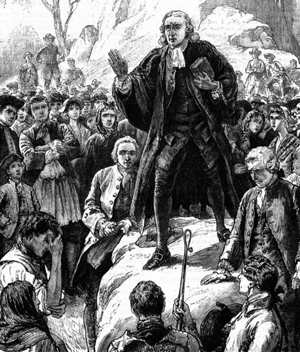
Emotional Appeals and Propaganda
 Propaganda has been used for centuries to try to sway the attitude of a group of people. You may recall uses of propaganda in modern times, especially during election campaigns. In this topic, you looked at an early American example of using emotional appeals written by Jonathan Edwards, who used various tones to persuade his congregation with his sermon "Sinners in the Hands of an Angry God." Commercials and advertisements are much like traditional pieces of propaganda as they intend to persuade an audience to think and then do something. They, too, use elements of pathos, logos, and ethos, and various rhetorical techniques to make a persuasive argument. In addition, it can be argued that persuasive rhetoric makes use of the parts of speech of the English language in specific ways that create messages with purposeful meaning, flow, and effect.
Propaganda has been used for centuries to try to sway the attitude of a group of people. You may recall uses of propaganda in modern times, especially during election campaigns. In this topic, you looked at an early American example of using emotional appeals written by Jonathan Edwards, who used various tones to persuade his congregation with his sermon "Sinners in the Hands of an Angry God." Commercials and advertisements are much like traditional pieces of propaganda as they intend to persuade an audience to think and then do something. They, too, use elements of pathos, logos, and ethos, and various rhetorical techniques to make a persuasive argument. In addition, it can be argued that persuasive rhetoric makes use of the parts of speech of the English language in specific ways that create messages with purposeful meaning, flow, and effect.




